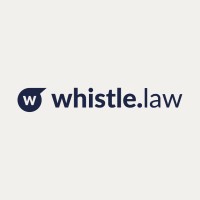What is a Whistleblower System?
Manuel Weiss10/27/2023
Whistleblower systems offer early detection of misconduct and protection for whistleblowers, but also carry risks such as misuse and costs.
Table of contents
A whistleblower system is a system that is used in companies and organizations to provide employees and other persons with a confidential communication channel. Through this channel they can report possible crimes and ethical violations without fear of negative consequences. This system allows misconduct or rule violations to be reported anonymously and provides various reporting channels such as mailboxes, telephone hotlines, internal or external ombudspersons, digital whistleblower systems or combined systems for secure communication of misconduct.
Companies and organizations benefit from whistleblower systems as they:
- Meet legal requirements: In many countries, including the EU, companies are legally obliged to set up whistleblower systems, to ensure the protection of whistleblowers and the reporting of violations of laws and ethical standards. More information can be found in our article on the current whistleblower protection law.
- Protect employees and companies: Whistleblower systems create a shield that enables employees to report violations without fear of retaliation. This can help minimize financial and legal risks for the company.
- Preserve the company's reputation: By early detection and resolution of problems, companies can prevent damage to their image and negative media coverage.
- Promote corporate culture: The implementation of a whistleblower system can strengthen employees' trust in the integrity and transparency of the company and promote an open corporate culture.
- Identify risks early: Early detection of violations, misconduct or non-compliant behavior allows companies to take proactive measures.
A digital whistleblower system enables whistleblowers to submit reports online, making them accessible worldwide and around the clock. These systems offer anonymity and privacy protection and facilitate the documentation and evaluation of reports. They can be implemented in various languages and provide an efficient and secure channel for reporting misconduct.
In order to set up a successful whistleblower system, companies should heed various criteria, including data protection and data security, data storage and access, encryption and dialog options, language coverage, independent security checks, country-specific data protection, case processing and documentation, the combination of reporting channels, the narrowing down of topics and the permanent accessibility.
The best whistleblower systems
On OMR Reviews you can find the best whistleblower protection law softwares, sorted by ranking (as of 27.10.2023) in the category "Whistleblowing", for example:
You can find further providers of whistleblower systems in the Whistleblower category.
Advantages and disadvantages of a whistleblower system
Advantages of a whistleblower system:
- Early detection of misconduct: Whistleblower systems enable violations, illegal behavior or misconduct in a company to be identified at an early stage, before they lead to bigger problems or legal consequences.
- Improved compliance: By implementing a whistleblower system, companies can ensure that they meet legal requirements and regulations, leading to fewer legal risks.
- Protection of whistleblowers: An anonymous internal reporting office provides a safe and confidential channel for employees and other persons to report violations without fear of reprisals or discrimination.
- Reputation protection: By responding to misconduct and proactively addressing it, companies can protect their reputation and standing by preventing scandals or negative press coverage.
- Efficient investigations: Systematic documentation of hints facilitates the investigation of incidents and enables effective measures to be taken to solve problems.
Disadvantages of a whistleblower system:
- Abuse and false alarms: In some cases, whistleblowers systems can lead to employees or other persons making false or malicious claims, which can lead to unnecessary investigations and disruptions.
- Possible lack of confidentiality: Although whistleblower systems are designed to protect the identity of the whistleblowers, there is always a risk of confidentiality being violated, especially if there are weaknesses in the system.
- Costs and resources: Implementing and maintaining a whistleblower system requires financial resources as well as training for employees and the assignment of staff to handle hints.
- Possible abuse by the company: In some cases, companies could use whistleblower systems to identify unwanted whistleblowers or suppress information, which could lead to a loss of trust.
- Hesitance for whistleblowers: Even with a whistleblower system, some individuals may still be afraid to report violations, especially if they have concerns about the impact on their career or their safety.
On the whole, whistleblower systems are an essential part of modern corporate governance that helps to prevent or detect legal and ethical violations at an early stage and to take appropriate action.

